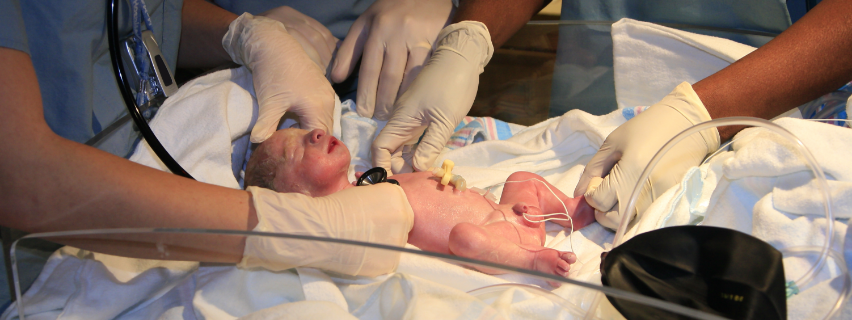What is Postpartum Care? Tips, Change: Emotional & Physical
As soon as you use the due date calculator or see the two pink lines on the pregnancy test kit, to check when will you see your little one, your excitement knows no bounds. However, pregnancy, childbirth and all that they entail do not end after you deliver your baby. The next stage after delivery is the postpartum stage.
What is Postpartum Care?
Right after you undergo delivery (whether natural or C-section), you undergo many changes – physical, emotional and mental. This stage, called postpartum, is the time it takes for you to go back to your pre-pregnancy stage, and can often last between 6-8 weeks post childbirth. However, each experience is unique and some may recover sooner or later, depending on many factors like the experience of childbirth, previous conditions etc.
As you navigate through the postpartum, you also get acquainted with many physical and emotional changes. You are healing your body while you and your partner learn to look after the newborn. As you experience all these, it can get overwhelming at times. It is thus, extremely crucial that you identify all the signs and changes and work towards healing them or accepting them. This care for the mother post-delivery, is called postpartum care.
What are some changes one undergoes physically & emotionally, after a normal delivery?
If you have just undergone a normal delivery, you can observe some or all of the changes, listed below:
- Vaginal Soreness
- Vaginal Discharge
- Urine Leakage
- Hemorrhoids
- Tender Breasts
- Hair & Skin Changes
- Changes in Mood
Vaginal Soreness
If you had a vaginal tear or needed an incision during childbirth, there may be some vaginal soreness post the delivery. Or in layman terms, there is a loss of tightness after birth. This can be alleviated with cold/hot packs, over-the-counter painkillers, warm baths etc.
Vaginal Discharge
Post-delivery, you will start shedding the superficial mucous membrane that lines the uterus during pregnancy. This can cause heavy bleeding and can last up to weeks. However if you experience too much pain or it continues for a long time, you should consult your doctor.
Urine Leakage
Vaginal delivery can loosen your pelvic muscles and this can lead to a few drops of urine leakage involuntarily when you laugh, sneeze etc. You can consult your doctor for any exercises that can help tackle this.
Hemorrhoids
If you experience pain while passing bowels or notice a swelling in the area, you may have hemorrhoids. You can consult your doctor and it can be eased with creams, medication or eating fiber-rich foods.
Tender Breasts
The breast engorgement, usually experienced after childbirth can be eased with frequent breastfeeding on both sides. Benefits of breastfeeding have been noted in both mother and baby and can also help ease the tenderness.
Hair & Skin Changes
When you’re pregnant, your hormonal changes can make your hair grow faster than it sheds and also make you skin glow. But after delivery, you may observe the exact opposite as your hormone levels go back to normal. This can last up to 4-5 months. However, there are some hair and skin tips that you can look into to take care of this.
Changes in Mood
Hormonal changes and the sudden shift of roles, can often lead to mood swings post childbirth. It’s important that you stay conscious of these changes and address them accordingly. If your mood swings are unusually low or if you notice the signs of postpartum depression, it’s best to get in touch with experts.
Tips for Postpartum Care
As you undergo the aforementioned changes, it’s necessary that you look after yourself and here are some postpartum care tips to do just that:
- Take ample rest
- Keep a check on your physical and mental signs & developments
- Eat healthy
- Do light exercises after consulting your doctor
- Check-in with your partner and spend some time together
- Check-in with your doctor at all stages
- Consult your doctor immediately if you notice anything unusual
- Practice yoga or meditation for a calm mind
- Take some time for yourself
Key Takeaway
Postpartum care is an important part of every woman’s healing journey and is unique to her. Paying attention to your signs and always consulting your doctor can make this process easier. Keeping a calm mind and allowing yourself time to heal with the help of loved ones is the key to a healthy recovery.
Frequently Asked Questions
- How long should you rest after giving birth?
Rest for at least 6-8 weeks after giving birth. However, this will depend on how you give birth and the conditions during this time. It’s best to consult your doctor after childbirth. - How should I sleep after delivery?
Sleeping on the side is generally recommended after delivery but it all depends on your comfort level and your doctor’s recommendation. - How can I make my tummy flat after delivery?
Immediately after childbirth, breastfeeding helps reduce weight but the tummy/ovary will go back to its original size after 6-8 weeks. Post childbirth, you can consult your doctor and start exercises and a healthy diet to get back into shape. - How do I know if I tore my stitches after birth?
Tearing your stitches will cause some kind of discomfort – usually pain or bleeding. It’s best to check-in with your doctor to ensure that everything is in order for recovery. - Why do I still look pregnant 3 months postpartum?
Every pregnancy and delivery is different and it may take longer for some to go back to their pre-pregnancy stage. Consult your doctor, if you notice no change even after a prolonged period. - How long does it take for a woman’s body to go back to normal after pregnancy?
Normally, it takes 6-8 weeks for your body to go back to your pre-pregnancy stage to a certain extent. However, a complete recovery is a long process and can be achieved with the right diet, guidance and light exercises. You can consult your dietician or doctor for guidance on the same. - How to take care of your vagina after giving birth?
If you had a vaginal birth, you may experience pain and soreness post-delivery. Hot/cold compresses and warm baths can ease the pain and you can also ask your doctor for prescription painkillers.
Disclaimer:This blog solely intended for the educational/informational/awareness purposes and is not a substitute for any professional medical advice, diagnosis or treatment. Please consult your doctor/healthcare professional before acting on the information provided on the blog. Reliance on any or all information provided in the blog, is solely at your own risk and responsibility. Mankind Pharma Limited shall not be held liable, in any circumstance whatsoever.







































Leave a comment